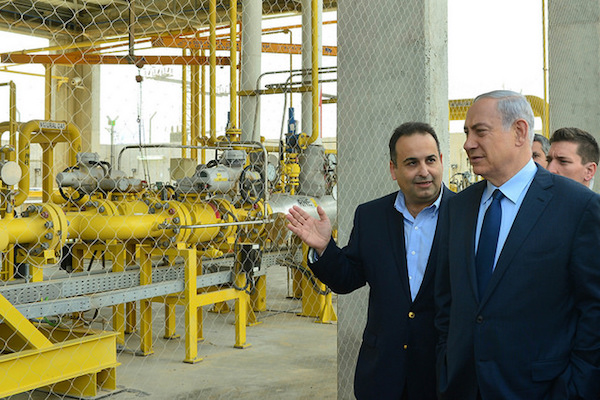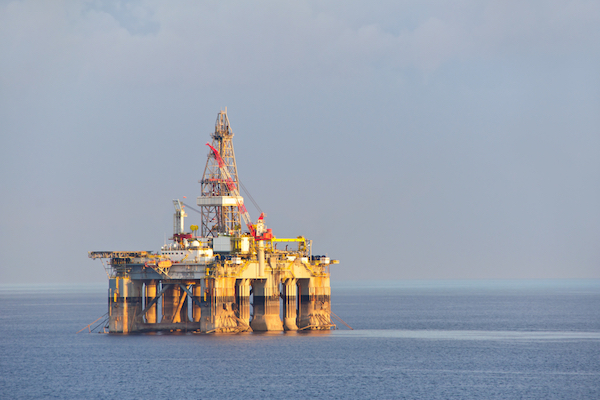It’s no coincidence that a deal to normalize relations between Turkey and Israel was announced on the same day that Netanyahu pushed a natural gas deal through the Knesset. As usual, the Palestinians are the biggest losers — oh yeah, and the Greeks.

Two years ago, when a major-but-ultimately-premature breakthrough in the frozen relations between Israel and Turkey was announced, I wrote a short and silly post explaining the development through the lyrics of Wu-Tang Clan mainstay Method Man: “Cash rules everything around me.”
The Turkish energy minister declared at the time that his country was the only suitable port of entry into Europe for Israel’s off-shore natural gas fields, but that negotiations about pipelines could only begin once the two countries re-normalized diplomatic relations.
On Thursday, we once again witnessed just how connected the two issues are. Just hours after pushing through parliament a deal that lifted the final hurdle to getting the gas flowing, Israeli Prime Minister Benjamin Netanyahu’s office announced that understandings had been reached with Turkey to resume full diplomatic relations.
There is no such thing as a coincidence on matters like these.
Just a few weeks ago a senior former Turkish diplomat familiar with the negotiations told +972 that the deal to normalize relations between the two countries had long ago been finalized, and that the ball was in Israel’s court to make the final move. That the final puzzle piece, it seems was the gas.

In the unofficial announcement made by Israeli officials on Thursday, a number of points were detailed: Israel will compensate the families of the 10 Turkish nationals its commandos killed aboard the Mavi Marmara (which was agreed upon a long time ago); the countries will reinstate their respective ambassadors (agreed upon long ago); criminal charges against Israeli officials relating to the Marmara killings would be dropped (agreed upon long ago); and Turkey would take steps to limit Hamas activities within its borders (a minor concession). The final point, was that negotiations about building a natural gas pipeline would commence quickly.
The gas issue is important to Turkey for a number of reasons, some new and some old. The long-standing ones relate to pure economic interest, but also ensuring the country’s continued importance to Europe as a reliable supplier of fossil fuels. The latter has become all the more urgent as Europe and Turkey face down Russia on a constantly growing number of diplomatic, economic and military fronts.
Israel had also been in negotiations with Greece, which also wants to be the main port of entry into Europe for Israeli gas. Israel’s most important off-shore gas field straddles the country’s exclusive economic zone boundary with Cyprus, a close ally of Greece and a long-time foe of Turkey. Greece, which is in deep economic straits of its own, has been fighting hard for the right to import eastern Mediterranean gas into the European Union. Successive Greek governments have made a number of gestures toward Israel in order to sweeten the pot for such a deal, the latest of which was a declaration that Helenic Customs officials would ignore new EU directives that require labeling Israel settlement products.
But in addition to pure economic interest, and it must be noted that trade and commercial ties between Turkey and Israel did not suffer very much in the five years of diplomatic discord, there is also an influential, liberal realpolitik worldview at play in the offices of Israeli Prime Minister Netanyahu and Turkish President Recep Tayyip Erdoğan.

Both men believe in a geopolitical order based on interests of economic growth and prosperity. For Netanyahu, the idea was clearly articulated in his “economic peace” platform on which he ran in 2009 before he was pressured into endorsing the two-state solution. This approach to regional ties can also be seen in the often delusional-sounding messages coming from the halls of power in Jerusalem about building alliances with Gulf states, independent of any progress on the Palestinian front.
For Erdoğan, constantly expanding trade and capital investment in a broad range of regional countries —from Iran to Germany and the EU to Israel to the Gulf states to Syria before the war — has been a strategy for diversifying regional leadership and influence, and, at least in theory, fostering stability.
Yet both leaders have been disappointed by the results of their economic peace endeavors. For Turkey, strong economic ties with the EU have not been able to bridge xenophobic and other political hurdles to membership in the European Union; a strong economic relationship with Syria was undermined by Assad’s crimes and the ongoing war; relationships with Arab states have been tested by the war in Syria; and now ties with Russia have been dangerously compromised in the skies above Syria.
Netanyahu’s “economic peace,” meanwhile has fallen flat on its face, along with all efforts to achieve real types of peace. Israeli fantasies about building strategic alliances with Gulf states around the Iranian issue, too, were deflated by the Iranian nuclear deal.
All of that makes the situation for renewing ties between Israel and Turkey riper than ever. The economic and geo-political interests for both countries are clear. Netanyahu and Erdoğan can offer each other cash and stability. What more can a leader ask for?
The largest political division that remains between the two men is the Palestinian issue. In the past, one of Erdoğan’s major public demands of Israel before reconciliation could take place was the latter lifting its siege on the Gaza Strip. That was a non-starter for Israel, and apparently only dramatics for Ankara.
So what about the Palestinians?
The Palestinian issue has always posed a major hurdle for Israeli ties with its neighbors. Resolving the problem of Palestine was a major part of Israel’s peace treaties with both Egypt and Jordan. And yet it has managed to ignore those treaty obligations for decades with a grand total of zero consequences. In those cases, too, the geopolitical and economic benefits of normalization with Israel outweighed the moral or domestic political considerations that demand action on the Palestinian front.
The Middle East is facing a terrifying future of instability, war and political turmoil. Nobody believes that anything good is going to happen anytime soon. And in that reality, from a realist perspective like those held by Netanyahu and Erdoğan, it’s better to strengthen whatever friendships you can muster.

